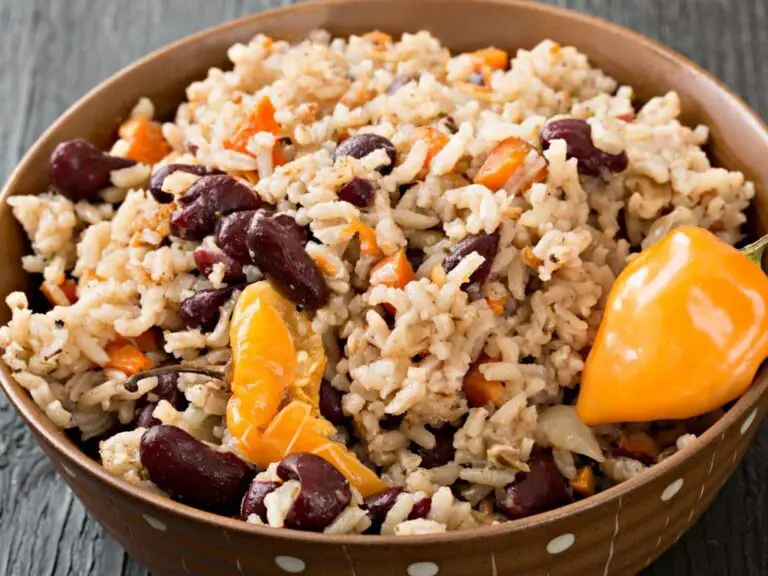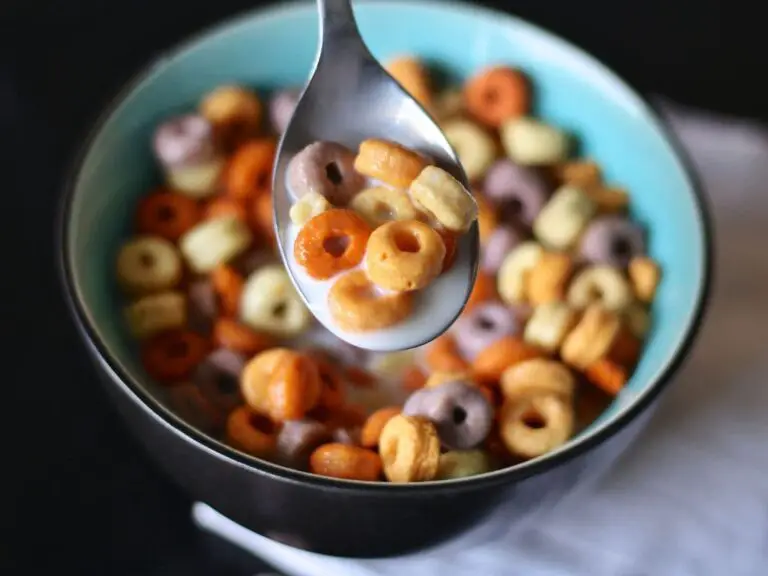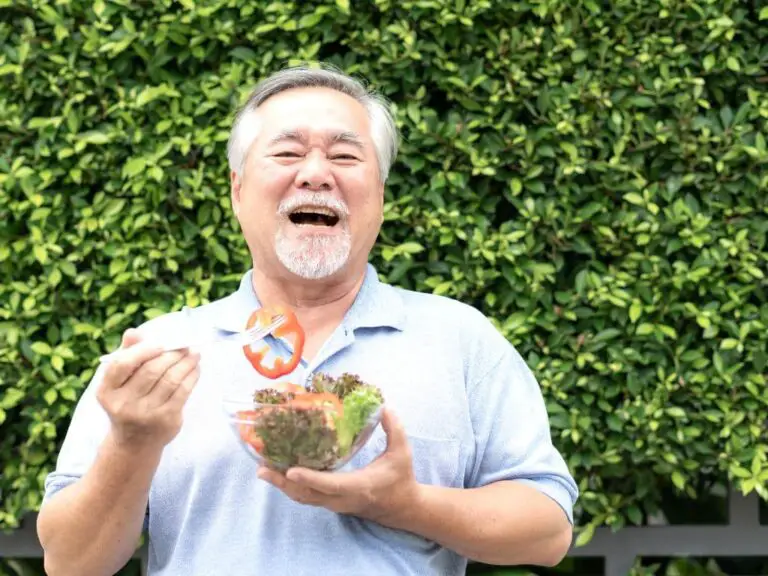Can You Eat Grapes on Keto?
The keto diet has become an increasingly popular way to lose weight, control blood sugar, and support heart health. This low-carb, high-fat diet helps the body reach a state of ketosis, where it burns fat for fuel instead of carbs.
For seniors, the potential benefits of a keto diet are appealing. However, with the restrictive nature of the diet, questions arise about whether fruits like grapes can be incorporated.
While grapes are nutritious, they are high in carbs and natural sugars, making them less suitable for a keto diet. A one-cup serving of grapes could potentially exceed the daily carb limit of the diet. However, in moderation and with mindful portion control, small amounts of lower-sugar grape varieties can be incorporated into a keto diet.
This article will explore whether seniors can eat grapes on a keto diet and how to do so effectively.

What Is the Keto Diet and How Does It Benefit Seniors?
The keto diet is a low-carb, high-fat, moderate-protein diet. By severely limiting carb intake to around 50g per day, the body enters ketosis. In this metabolic state, the liver converts fat into fatty acids called ketones, which become the main fuel source for the body and brain.
For seniors, potential benefits of a keto diet include:
- Weight loss: By switching the body’s primary fuel source to fat, keto can promote weight loss without hunger or calorie counting. This can be beneficial for obese seniors.
- Blood sugar control: Due to the low carb intake, keto diets have been shown to lower blood sugar and insulin levels, which may help manage or prevent type 2 diabetes.
- Heart health: Keto diets may improve risk factors for heart disease like high blood pressure and elevated cholesterol.
However, it’s important for seniors to consult their doctor before starting a keto diet, especially if they have any underlying health conditions or take medications.
What Nutritional Value Do Grapes Offer?
Grapes are a tasty fruit that provide a range of vitamins, minerals, and plant compounds:
- Vitamins: Grapes contain vitamin K, vitamin C, and some B vitamins.
- Minerals: They provide potassium, calcium, magnesium, phosphorus, and selenium.
- Antioxidants: Grapes are rich in polyphenol antioxidants like resveratrol, which may protect cells from damage.
- Fiber: They contain insoluble fiber in their skin and seeds.
The specific nutrition in grapes depends on the variety (green, red, black) and ripeness. Riper grapes tend to be higher in natural sugar. A cup of green grapes has about 15g net carbs.
Are Grapes Keto-Friendly?
Despite their nutrition, grapes are considered high-carb for a keto diet. A one-cup serving could potentially take up your entire carb allowance for the day.
The natural sugars in grapes can also easily kick you out of ketosis. Even in small amounts, these sugars are quickly absorbed and can raise blood sugar and insulin.
So it’s best to limit high-sugar fruits like grapes on keto, especially if you are senior with blood sugar concerns. Lower carb fruits like berries are better options.
That said, it is possible to incorporate small servings of grapes into a keto diet in moderation. Look for lower sugar varieties and be mindful of portions.
What Types of Grapes Are Best for a Keto Diet?
If you do want to integrate grapes into your keto diet, these varieties tend to be lowest in sugar:
- Green grapes
- Red flame grapes
- White grapes
- Thompson seedless grapes
Tart grape varieties like Concord or Muscadine grapes also have lower carb counts. Avoid super sweet varieties like Cotton Candy grapes.
Checking ripeness helps too – less ripe grapes will be starchier with less sugar development. This makes them a better keto choice.
How Many Grapes Can You Eat on a Keto Diet?
As a guide, aim to stick to 1/2 cup or less of grapes per day on keto. This provides about 7-8g net carbs.
1/2 cup equals around 30 seedless grapes or 15 larger seeded grapes. Weighing your portions can help too – aim for no more than 75-85g daily.
Spread this grape intake into multiple small servings over the day. And be sure to account for the carbs in other meals and snacks.
What Are the Benefits of Eating Grapes on a Keto Diet?
In moderation, grapes offer these benefits as part of a keto eating plan:
- Provide vitamins, minerals and antioxidants
- Add flavor and sweetness to balance the high fat in keto meals
- Offer fiber that supports digestion and gut health
- Provide variety to the diet beyond meat, oil and low-carb veggies
- Allow for an occasional, sensible treat in a restrictive eating plan
Just watch portions and opt for low sugar varieties.
Are There Any Risks Associated With Eating Grapes on a Keto Diet?
There are a few potential risks to keep in mind:
- Grapes could quickly take you out of ketosis by spiking blood sugar if you eat too many.
- The fructose in grapes may cause digestive issues like bloating when over-consumed.
- Grapes have low protein and could lead to inadequate protein intake on keto.
- High oxalate content in grapes could potentially contribute to kidney stones.
To reduce risks, use portion control, choose low sugar varieties, and balance grapes with high protein foods. Monitor carb counts and ketone levels when integrating grapes into a keto diet.
How Do I Incorporate Grapes Into My Daily Keto Diet Meals?
Here are some tips for enjoying grapes on a keto eating plan:
- Add a few grapes into a keto smoothie bowl.
- Mix chopped grapes into full-fat Greek yogurt with cinnamon.
- Pair a small grape serving with cheeses, nuts or seeds for a mini charcuterie board.
- Freeze grapes for a cooling snack on hot days.
- Roast grapes lightly with olive oil, salt and pepper for a warm side.
- Use halved grapes and fresh herbs to top keto-friendly chicken salad.
Always weigh or count grapes within your daily carb limit. Steer clear of high-sugar, carby dishes like grape juice, jams or jellies.
What Other Fruits Can Seniors Eat on a Keto Diet?
In addition to limited grapes, these fruits can be enjoyed in moderation on keto:
- Berries like strawberries, blueberries and raspberries are lower in sugar.
- Avocados provide fiber and heart-healthy fats.
- Tomatoes, especially cherry or grape varieties, offer vitamins and antioxidants.
- Small portions of melon, pineapple, coconut and citrus fruits can provide flavor.
- Olives and their oil have healthy fats that are great for keto.
Focus on incorporating these keto-friendly fruits to meet daily carb limits. They provide key nutrients and antioxidants within a low-carb framework.
How Can Seniors Follow a Keto Diet Safely and Effectively?
Seniors interested in trying a keto diet should take these precautions:
- Consult a doctor, especially if you have a medical condition like diabetes or heart disease.
- Work with a registered dietitian or certified diabetes educator to tailor keto to your needs.
- Stay hydrated and eat plenty of low-carb vegetables for nutrition.
- Take supplements if needed to support electrolytes, bone health or other nutrients.
- Monitor blood sugar carefully if you have diabetes and adjust medications under medical supervision.
- Ease into keto slowly and be mindful of side effects like keto flu, constipation and fatigue.
With proper precautions, an individualized keto plan can be safe and sustainable for seniors seeking the benefits of ketosis.
What Are the Risks of a Keto Diet for Seniors?
There are some health risks to keep in mind with a keto diet, especially for seniors:
- Dehydration and electrolyte imbalance if fluids and electrolytes aren’t replaced sufficiently.
- Potential bone loss over time due to the diet being restrictive in fruits/veggies and whole grains.
- Increased risk for constipation without adequate fiber from carb sources.
- Medication adjustments needed for diabetes, blood pressure and cholesterol medications.
- Possibility of kidney stones or damage due to high protein and oxalates.
- Aggravation of digestive conditions like reflux or IBS.
To minimize these risks, seniors should work with their healthcare provider, follow up regularly, stay hydrated and focus on nutrition. Ketone levels and blood sugar should be monitored closely, especially if taking diabetes medications. With proper precautions, keto can be safe but side effects should be watched for.
Frequently Asked Questions
-
Can you eat grapes on keto?
There are some issues with certain fruits when you follow the keto diet, despite the numerous health benefits. For example, bananas and grapes contain high amounts of carbohydrates. A cup of grapes contains approximately 26g and a medium banana has 24g. These fruits are best avoided.
-
Are low-carb diets good for seniors?
For seniors, low-carb diets can be beneficial. Seniors who lack protein could experience lower immunity function and osteoporosis. Paleo and Atkins are low-carb options for senior citizens. They can ensure that you have the right amount of protein. Low-carb advocates claim that weight loss is not the only reason for a low carb lifestyle.
-
Can you eat fruit on keto?
Low-carb and ketogenic dieters may wish to stay away from most fruits as they can cause ketosis. Avocados, tomatoes, and some berries are a few of the low-carb options. Fruits are healthy and can be included in a real-food-based healthy diet for those who don’t follow a low carb diet.
-
What does ketosis feel like?
Side effects of ketosis include headaches, stomach upset and changes in sleep quality and energy. To determine if you are in ketosis or not, it is possible to test the ketones levels in your blood, urine, and breath.
-
What is dirty Keto?
Dirty keto refers to a low-carb, high-fat ketogenic diet. Clean keto is a diet that prioritizes whole foods and maintains a regular keto macronutrient analysis. It doesn’t really matter from where the macros are coming.
-
Can I eat tomatoes on keto?
Tomatoes can be different than other fruits. However, they are considered keto-friendly. Tomatoes have around 23g net carbs in 3.5oz (100g), which is 10x less than other fruits, regardless of variety.
-
Can I eat salad on keto?
Salads are a great way to get more protein while adhering to the ketogenic diet. These keto-friendly salads can be used as a side dish, main meal, or for dinner. Are you looking for keto-friendly desserts ideas? You have come to the right place!
-
Is it OK to eat carbs once a week on keto?
Ketosis isn’t for everybody. Your body will function well if you add clean carbs like sweet potatoes and squash once per week. Cyclical ketosis will benefit your brain, body and joints.
-
How do I protect my kidneys on a keto diet?
Extra sodium can be a good idea for keto, particularly if you’re just starting. Research suggests that plants-based proteins may be more beneficial for those with kidney disease than animal-based protein.
-
Is ketogenic diet safe for elderly?
This diet should not be used if you have any eating problems. The keto diet is not suitable for those with diabetes. The keto diet is great for those who struggle with specific nutrients like B12 and fats.
-
Can you eat pasta on keto?
You probably already know that pasta is not persona nongrata if you are following the ketogenic diet. The keto diet emphasizes high-fat, low-carb food choices. The carbohydrate content of traditional pasta can cause blood sugar to rise and could lead you to lose ketosis.
-
Are there dangers to keto diet?
Low blood pressure, kidney stones and constipation could all be caused by the keto diet. Keto diets can also lead to social isolation and disordered eating. Keto isn’t safe for people with conditions that affect their liver, pancreas or thyroid.
-
What is the best way to lose weight at 70?
These golden rules still hold true for weight loss: Eat less calories than what you drink or eat. Increase your intake of vegetables, fruits, legumes, low-fat and fat-free milk, as well as whole grains and fish. Keep meat and poultry lean. Avoid empty calories such as sugars, and foods that have little to no nutritional value.
-
Why you should stop keto?
There is no energy. Keto could be the reason. The body uses carbohydrate as its preferred energy source so removing them from the diet can cause serious fatigue. While Keto fatigue is often a temporary relief as your body switches to fat for energy, some find that it can be a long-term struggle.
-
What should a 70 year old eat for breakfast?
Calcium-rich foods like milk products and leafy vegetables can help build healthy bones, maintain them, and lower blood pressure. Fiber-rich foods, such as whole grains, nuts and legumes are important because they help with digestion and support the gastrointestinal system.







